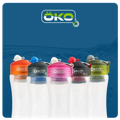It all started HERE
Miles above the earth, the International Space Station (ISS) is where our technology was originally used.

A technology used and supported by NASA

Our original filter

🔍3 steps to understanding filtration🔍
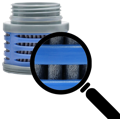
01
Filter composition
The filter membrane is composed of a natural mineral fiber (pseudoboehmite AIOHH), antibacterial ions, and a microscopic sprinkling of activated carbon.
It is 8 mm thick and has more than 400 pores.
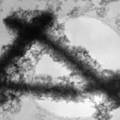
02
Mechanical filtration
Its pores are calibrated to 1.25 microns, mechanically blocking all particles larger than or equal to this size, such as sediments and impurities.
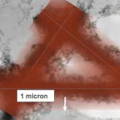
03
Submicron filtration
When it comes into contact with water, the natural mineral fiber emits a positive charge field that surrounds the hollow volume of the pores. The water is thus stripped of submicron contaminants, which are attracted like a magnet to the membrane's retention surface. This is electro-adsorption.
ÖKO is a revolutionary concept combining:
Instant filtration developed by NASA;
A food-grade bottle body that can be used for many years;
The FilterSure™ feature invented by ÖKO forces all backflow through a valve and returns air after each press so that you don't have to unscrew the bottle to continue filtering. This process not only ensures that the filter is sealed and working properly, but also prevents you from drinking potentially contaminated water.
Let's discover the whole bottle!

Washable pipette protector
Protects pipette from dust (more hygienic)
Retractable and washable pipette
Pull to open and push to close
Metal carabiner
So that you can attach your water bottle anywhere
Carabiner holder
Strap hook
(Strap not included)
FilterSure™ check valve
Allows comfortable air return with each press.
Ease of use on a daily basis.
Filter and assembly based on NASA® technology
The fiber used has a retention surface that can neutralize and retain billions of pathogens!
Only the filter needs to be replaced, that's where the real savings are.
Integrated thread seal
Prevents leaks through the screw thread during filtration
Ultra-resistant polypropylene (PP) bottle with flexible walls
FDA food safety compliant
Tested by SGS
Temperature resistant to prevent mold and odors.
Curved bottle
For a better grip
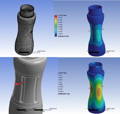
Not just any ordinary plastic bottle!
They are made from a special polypropylene, similar to food storage containers.
- It is very flexible and compressible, allowing water to pass efficiently through the complex filtration system;
- It is food grade ;
- It withstands high temperatures;
- Itdoes notemitany odor;
- It is durable;
- It is recyclable.
When you take water filtration seriously


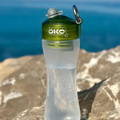
 Contact us
Contact us
 FREE shipping* on orders over €75
FREE shipping* on orders over €75
 Delivery within 2 to 5 days
Delivery within 2 to 5 days
 Secure payment
Secure payment
 Official distributor
Official distributor

